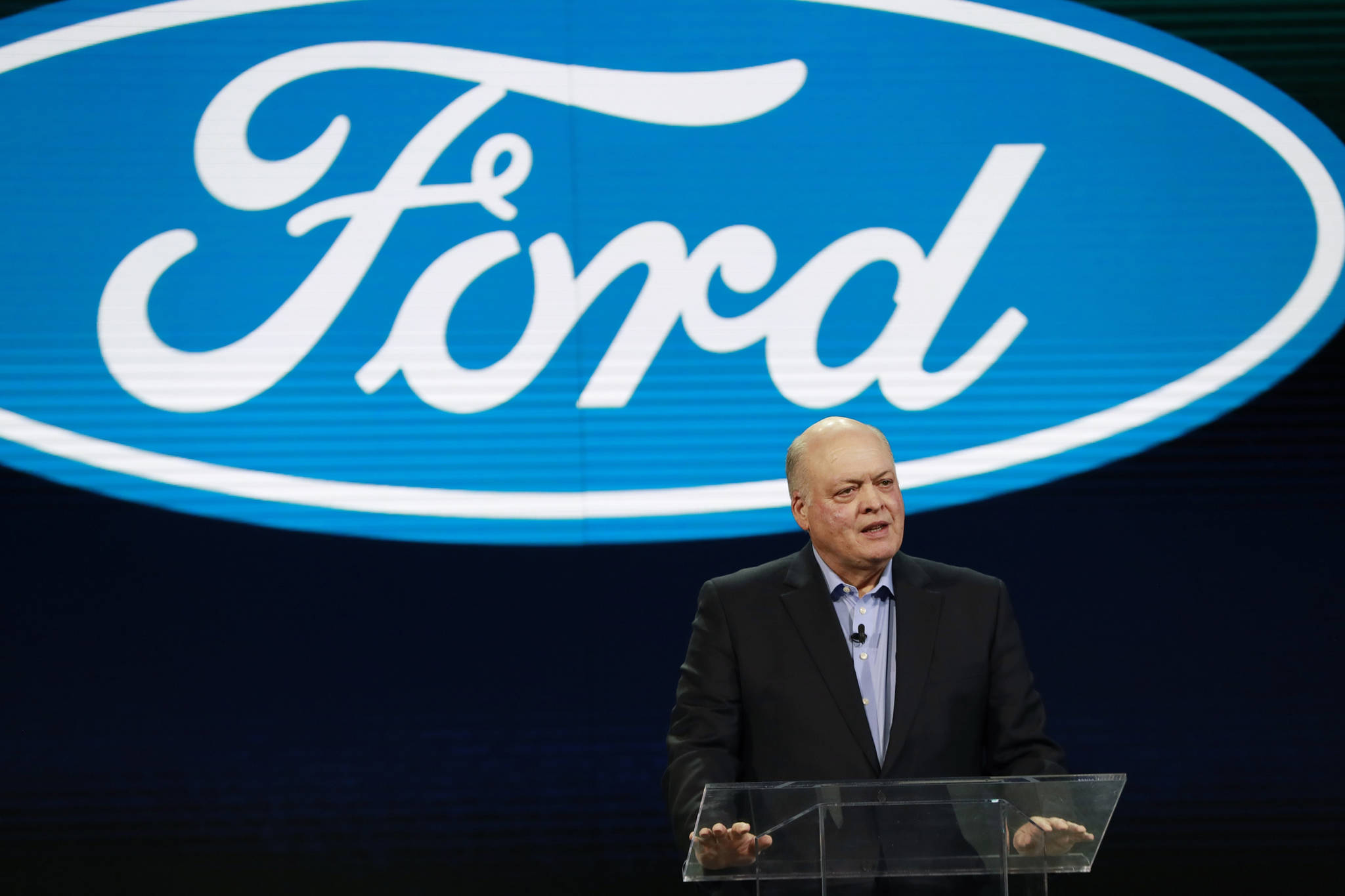The Ford Motor Company and Georgia-Pacific are sending hundreds of people into the ranks of the unemployed. The State of Alaska will, too.
But whereas the chief executive of the two industry giants can acknowledge the contributions of their affected workers, Gov. Mike Dunleavy would be contradicting himself to express an appreciation for the work done by the people he’s about to lay off.
The explanations for disrupting the lives of working-class people almost always begins with “it’s not personal.” It’s a business decision driven by profit and loss math coupled with changing technologies in a competitive environment.
Ford isn’t losing money like they did between 2006 and 2008. But sales have fallen for the past several years. CEO Jim Hackett was brought on to reverse that trend.
[Opinion: Cutting government services will hurt Alaska’s quality of life]
“Ford is a family company and saying goodbye to colleagues is difficult and emotional,” he wrote in a letter to employees explaining why the automaker is cutting 7,000 salaried positions. “I hope that you take a moment to thank them personally for their service and commitment to Ford.”
Obviously, Hackett hasn’t met most of those he’s laying off. But even while inferring their jobs would negatively impact Ford’s bottom line going forward, he isn’t suggesting they’d never been part of a team working to make the company successful.
The Georgia-Pacific case is a tale of two cities. Last month, the Atlanta-based wood products manufacturer closed a lumber mill in Coos Bay, Oregon. And they’re reducing the product line at a plant in Port Hudson, Louisiana.
In a formal statement, Georgia-Pacific claimed Asian competition for raw logs and a railway bridge closure had made the lumber products produced at Coos Bay unprofitable. Some in the industry and a state legislator are blaming the federal and state governments for reducing the timber harvest on public lands by more than 70 percent since the mill opened in 1994. But no one is saying the workers never helped the mill turn a profit.
[Opinion: It’s time for Canada to clean up the polluting Tulsequah Chief Mine]
In Port Hudson, Georgia-Pacific is shutting down the office paper producing division of the plant. The decision was in response to a steady decline of demand since 2013.
“Everybody who worked there suspected it was coming so it wasn’t a surprise,” one laid off worker explained to a local reporter, “but it was a shock” after putting 19 years in at the plant.
The common theme in all three stories is although the workers let go aren’t happy, they generally understand that the decision is related to the changing market for the products they produced. And cooperate managers can genuinely say they appreciated the work those employees did.
But Dunleavy isn’t thanking the soon-to-be out-of-work Alaska Marine Highway System employees for their service and commitment to the people of Southeast Alaska. He’s implying they never should have been hired.
[Opinion: Strong support for responsible resource development in Southeast Alaska]
The message from this governor to a lot of state workers is they owe their jobs to irresponsible government spending that began decades ago. That their employment has had a negative effect on Alaska’s economy. And the reason Alaskans didn’t receive their full Permanent Fund Dividends the last three years is because the prior administration refused to eliminate the unnecessary state services they were being paid to deliver.
In regard to the PFD, Dunleavy is publicly arguing that his predecessor robbed money from us to fund the state. But that’s inconsistent with his views on government taxation of businesses. Had that been the dominant philosophy 50 years ago, North Slope oil never would have been taxed enough to create it.
But because it exists, Dunleavy has to artificially set the parameters for the operating budget. None of the Permanent Fund can go into the revenue stream because it interferes with reducing the size of government.
Handing out bigger checks this year, enshrining the PFD formula in a constitutional amendment and paying us all $3,678 for the money cut from the previous three dividends are simply means he’s trying to apply to that ideological end.
Like Ford and Georgia-Pacific, Dunleavy can say it’s a business decision to lay off sizable a part of the state work force. But it’s not. And to state employees getting pink slips, he’s adding insult to injury by using them as pawns on his political chessboard.
• Rich Moniak is a Juneau resident and retired civil engineer with more than 25 years of experience working in the public sector. He contributes a weekly “My Turn” to the Juneau Empire. My Turns and Letters to the Editor represent the view of the author, not the view of the Juneau Empire.

